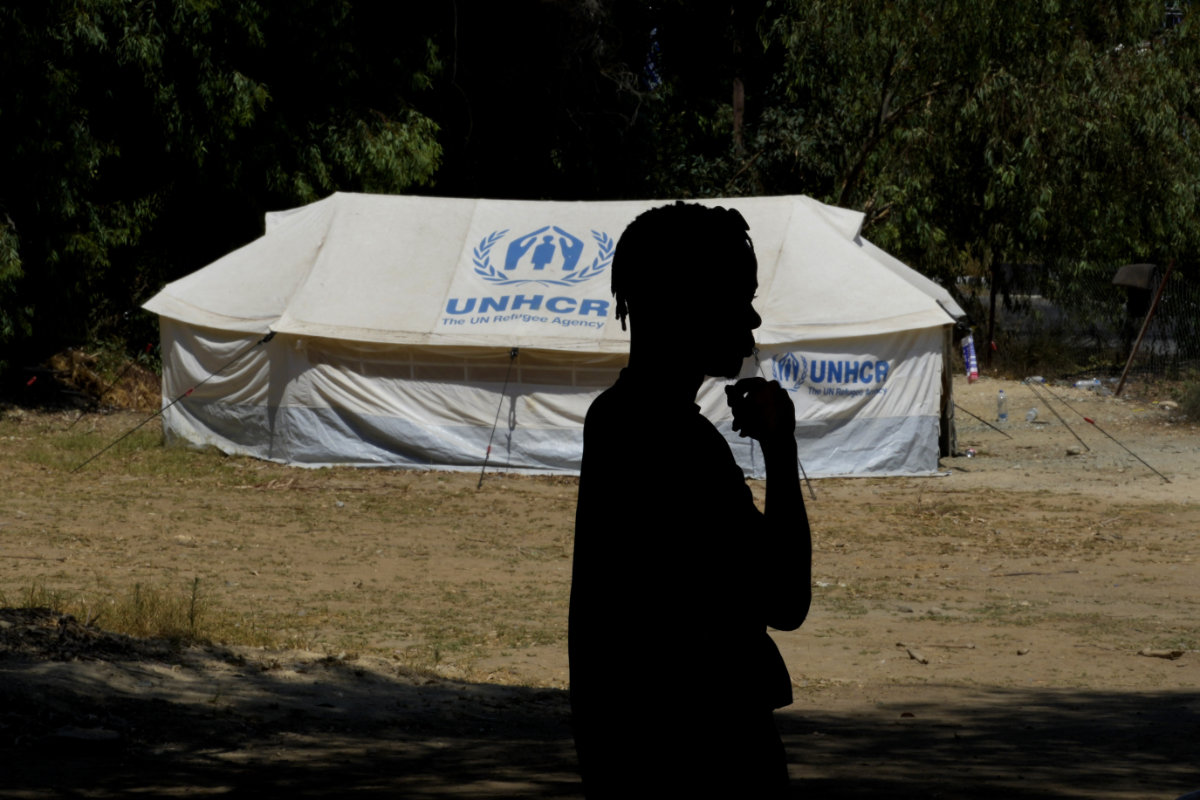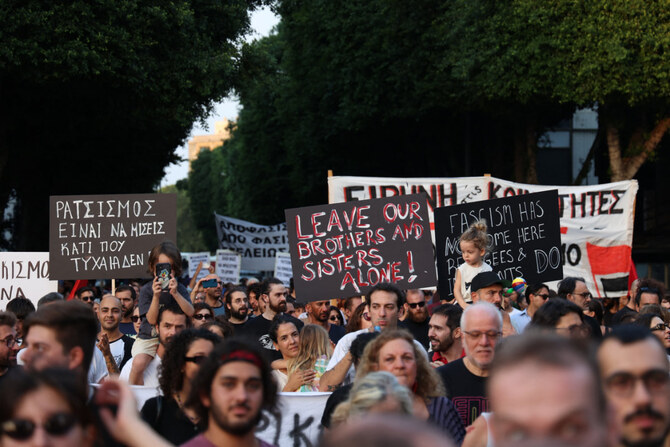NICOSIA, Cyprus: The chief of Europe’s top human rights watchdog has urged the government of ethnically divided Cyprus to allow passage to nearly three dozen asylum seekers who have for months been stranded in tents inside a UN-controlled buffer zone.
Michael O’Flaherty, the Council of Europe Commissioner for Human Rights, said in a letter released on Wednesday that despite receiving food, water and other aid, some 35 people, including young children, continue to face “poor living conditions” that make it difficult for them to obtain items such as formula milk and diapers for babies.
The migrants, who come from countries including Syria, Iran, Sudan, Afghanistan and Cameroon are stuck in a buffer zone that separates the breakaway Turkish Cypriot north of the Eastern Mediterranean island nation and the Greek Cypriot south where the internationally recognized government is seated.
In a letter addressed to Cypriot President Nikos Christodoulides, O’Flaherty said the migrants’ prolonged stay in such conditions is likely to affect their mental and physical health, as illustrated by the suicide attempts of two women.
O’Flaherty said he acknowledged the “seriousness and complexity” of Cypriot authorities’ efforts to stem the flow of migrants crossing the buffer zone from north to south to seek asylum where the internationally recognized government is seated.
But he said this doesn’t mean Cypriot authorities can ignore their obligations under international law to offer migrants “effective access to asylum procedures and to adequate reception conditions.”
O’Flaherty’s letter comes a couple of months after the UN refugee agency had also urged the Cypriot government to let the migrants seek asylum.

A refugee man stands in front of tent at a camp inside the UN-controlled buffer zone in Cyprus on Aug. 9, 2024. (AP/File)
Migrant crossings from the north to the south have dropped precipitously in recent months after Cypriot authorities enacted a series of stringent measures including the installation of cameras and special police patrols along sections of the 180-kilometer (120 mile) long buffer zone.
The Cyprus government ceded control of the buffer zone to UN peacekeepers after battle lines stabilized in the wake of a 1974 Turkish invasion that triggered by a coup aimed at uniting the island with Greece. Cypriot authorities have consistently said they would not permit the buffer zone to become a gateway for an illegal migration influx that put “severe strain” on the island’s asylum system.
Earlier this year, Cyprus suspended the processing of asylum applications from Syrian nationals after granting international protection to 14,000 Syrians in the last decade.
Christodoulides underscored the point to O’Flaherty in a reply letter, saying that Cypriot authorities are obligated to do their utmost to crack down on people-smuggling networks moving people from mainland Turkiye to northern Cyprus and then to the south.
It’s understood that all the migrants have Turkish residency permits and arrived in the north aboard scheduled flights.
The Cypriot president said authorities will “make every effort” in accordance with international law “to prevent the normalization of irregular crossings” through the buffer zone.
Regarding the stranded asylum seekers, Christodoulides said the government is offering supplies and health care and assured O’Flaherty that “we will resolve this matter within the next few weeks,” without elaborating.
The Cypriot president also defended patrols that marine police vessels conduct in international waters to thwart boat loads of migrants reaching the island by sea. He said those patrols fully comply with international law and rejected allegations that marine police are engaging in seaborne “pushbacks” of migrant boats.
Earlier this month, the European Court of Human Rights ruled that Cyprus violated the right of two Syrian nationals to seek asylum in the island nation after keeping them, and more than two dozen other people, aboard a boat at sea for two days before sending them back to Lebanon.
O’Flaherty asked Christodoulides to ensure that all Cypriot seaborne operations abide by the obligations flowing from the court ruling and to carry out independent probes into allegations of “unlawful summary returns and of ill-treatment” of migrants on land and at sea.
























